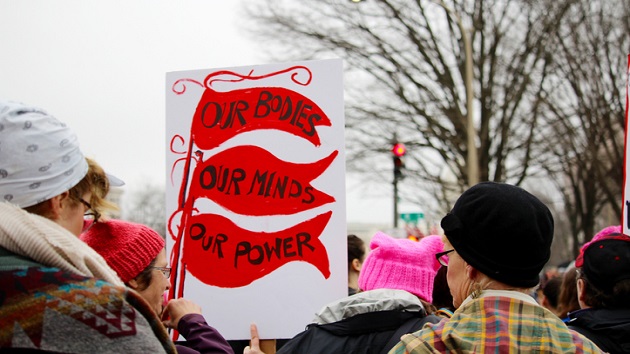
(NEW ORLEANS) — The legal battle over Louisiana’s statewide abortion ban rages on with a court hearing slated for Monday.
Since the United States Supreme Court overturned Roe v. Wade on June 24, declaring there’s no federal constitutional right to end a pregnancy, Louisiana’s abortion “trigger laws” arguably went into automatic effect, meaning the procedure immediately became illegal in the state. However, a lawsuit led by the Center for Reproductive Rights and the Boies Schiller law firm on behalf of Hope Medical Group for Women — a Louisiana abortion provider — has challenged the state’s three abortion trigger laws.
A New Orleans judge issued a temporary order blocking enforcement of the state ban on June 27. Less than two weeks later, on July 8, another New Orleans judge decided not to extend the temporary order allowing for abortions and transferred the case to Baton Rouge, saying it had been filed in the wrong jurisdiction and that state law required it to be heard in the capital.
However, three days later, Judge Donald Johnson of Louisiana’s 19th Judicial District Court in East Baton Rouge Parish issued a temporary order blocking the trigger laws pending a preliminary injunction hearing, which was scheduled to begin Monday morning. Louisiana’s three abortion clinics — in Shreveport, Baton Rouge and New Orleans — were allowed to resume operations until the court decides on whether to issue a preliminary injunction.
Following the historic ruling by the U.S. Supreme Court, Louisiana was one of just three states to have immediate trigger laws restricting abortions, including a ban on abortion after six weeks of pregnancy. These laws include “trigger language” designed to make them effective when federal abortion rights were reversed.
The first of Louisiana’s trigger laws was passed in 2006, stating that abortion under all circumstances except due to certain medical circumstances would become criminal offenses. However, there were no clear guidelines on how the ban would be enforced or exactly when it would become effective.
In June, in anticipation of the U.S. Supreme Court ruling, a second trigger law was signed, adding a statement directly relating to the overturning of Roe v. Wade.
A third trigger law was enacted just days later, stating that it will ban abortion after 15 weeks of gestation, as opposed to the first and second bans on abortion at any point. The three bans also all differ on their penalty provisions. There are no exceptions for victims of rape and incest.
In the lawsuit, plaintiffs don’t deny that Louisiana can now outlaw abortion, but they claim that the state ban is unconstitutionally vague due to multiple, conflicting trigger mechanisms. They also contend that state law is unclear on whether it bans an abortion prior to a fertilized egg implanting in the uterus. Attorneys for the plaintiffs want the judge to keep blocking enforcement as their suit is litigated.
Meanwhile, Louisiana Attorney General Jeff Landry’s office will argue that the state ban is constitutional and should no longer be blocked. Last month, Landry lauded the U.S. Supreme Court overturning Roe v. Wade and warned that anyone wanting to fight abortion laws in his state is “in for a rough fight.”
ABC News’ Ely Brown, Kyla Guilfoil, Mary Kekatos and Briana Stewart contributed to this report.
Copyright © 2022, ABC Audio. All rights reserved.
